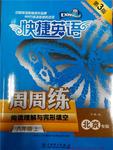题目内容
Working Women Over 70 Caught in the Retirement Trap At 74 ,Marie Maes is scrambling to find a work.
Even though she spent four 1 working in Colorado hospitals and Seattle nursing homes,the retired licensed practical 2 lives just above the poverty line on little more than $12 a day after she pays her rent.
She is among a near-record and 3 number of women working well into their 70s, thanks to smaller Social Security checks,4careers,smaller pensions,longer life spans than men and bad 5 planning.
"Of course I 6to get back to work," said Maes,a direct and optimistic woman. Asked whether she considers herself poor,she replied, " I never gave it a thought,but I guess I
Over the past 14 years,the number of women 8 in the United States between the ages of 70 and 74 nearly 9 from 324,000 to 618,000,according to the Labor Department.
More elderly people are looking for work these days,10 city job fairs not necessarily because they want to, 11 because they need the money.
Single older women like Maes are particularly weak. Nearly one in five of them lives in 12 ,more than three times the rate of the 13people of the same age. And many carry fewer resources into their 70s than men.
The gap suggests the nation's retirement system is 14 Maes and plenty of other women. Instead of 15 the New Mexico native for decades of hard work,it left her an empty bank account, $824 a month from Social Security and 16 to get back to work.
Maes' 17 is not uncommon. She started work later in life, 18 less money and relied on her husband to prepare for their retirement.
Marge Hampton, 70 ,chairwoman of a community group for older 19 ,once said,
"We looked to the man to take care of us... Then one day we 20 and said, ' Oh my God, what is here?'"
( ) 1. A. years B. months C. weeks D. decades
( ) 2. A. nurse B. doctor C. teacher D. professor
( ) 3. A. decreasing B. extending C. spreading D. growing
( ) 4. A. longer B. better C. earlier D. shorter
( ) 5. A. working B. family C. financial D. studying
( ) 6. A. need B. ought C. used D. plan
( ) 7. A. do B. have C. am D. will
( ) 8. A. living B. playing C. working D. staying
( ) 9. A. doubled B. rose C. appeared D. grew
( ) 10. A. taking B. leaving C. packing D. visiting
( ) 11. A. but B. and C. instead D. then
( ) 12. A. richness B. poverty C. danger D. trouble
( ) 13. A. single B. married C. rich D. poor
( ) 14. A. preventing B. discouraging C. failing D. stopping
( ) 15. A. saving B. paying C. prizing D. rewarding
( ) 16. A. pressure B. worry C. power D. pleasure
( ) 17. A. example B. situation C. suffering D. optimism
( ) 18. A. took B. wasted C. made D. spent
( ) 19. A. women B. men C. workers D. nurses
( ) 20. A. cheered up B. picked up C. stood up D. woke up
1-5 DADDC 6-10 ACCAC
11 -15 ABBCD 16 -20 ABCAD
本文以Marie Maes为例,讲述了美国社会中,由于种种原因,退休之后还需工作的老人的现状。
1. D指Marie Maes在医院工作了四十年,dec?ade是" 十年" 之意,其 他答案与文章不符。
2. A从上文她的工作经历可推断出Marie Maes是"护士"而不是医生。
3. D指像她这样由于退休金少,自己又没什么积蓄,退休后还需工作的女性人数在不断地"增长",所以选groWing。
4. D由于工作年限"短",女性不得不在退休后继续工作以维持生计。
5. C指个人的"理财"计划不周。
6. A指她目前迫于生计,"需要"出去工作。
7. C当被问及是否认为自己贫困时,她说从来没想过,伹她认为自己的确如此。am后省略"poor"。
8. C此处是指"在工作的"老年妇女的人数,所以用working0
9. A从下文的数字变化"from 324,000 to 618 ,000"可推断出几乎增长了一倍。
10. C指找工作的老人"挤满了"劳动市场, pack有"占据"、"布满"之意。
11. A考查"not... but..."句型。此句意为:不是想要去工作,而是因为他们需要钱。
12. B指五分之一的老年单身妇女生活在"贫困"之中。
13. B由此段开头的"Single older women like Maes"可推断出此处应指"已婚"妇女。
14. C fail (sb.:)表"忽略","忘记","让某人失望"等意思。
15. D指对数十年辛苦工作的"奖赏"。
16. A指数十年的努力工作没有带来回报,却带来了重返工作的"压力"。
17. B situation指"情形",example指"例子", suffering指"磨难",optimism指"乐观",此处指和Marie Maes一样情形的人。
18. C前面讲Maes工作较晚,所以make money(赚钱)就少。
19. A从下文"We looked to the man to take care of us…"可推断出,这个组织一定是关心和Marie Maes一样的妇女,所以用women。
20. D与丈夫在一起时,女人们往往一直靠丈夫。离婚以后如梦初醒,突然发现一切要靠自己,所以此处用woke up比较合适。

 快捷英语周周练系列答案
快捷英语周周练系列答案